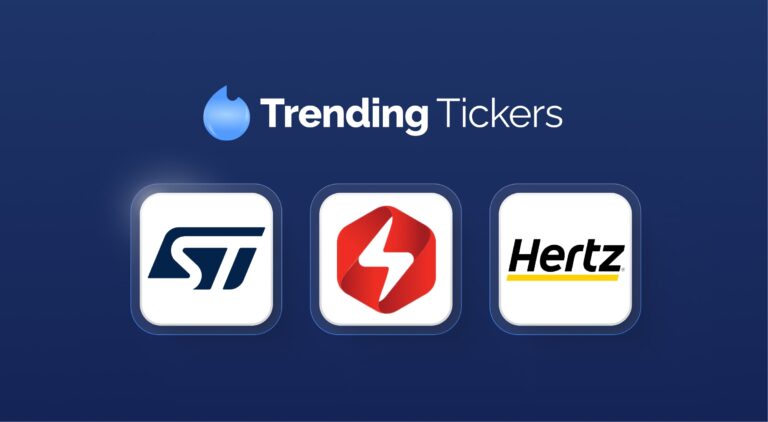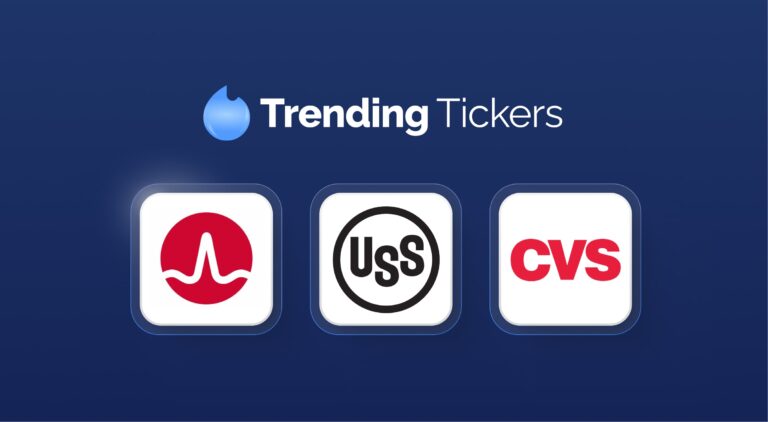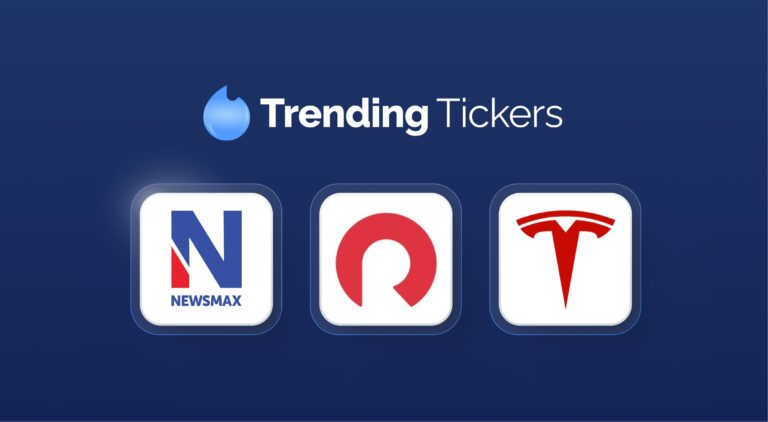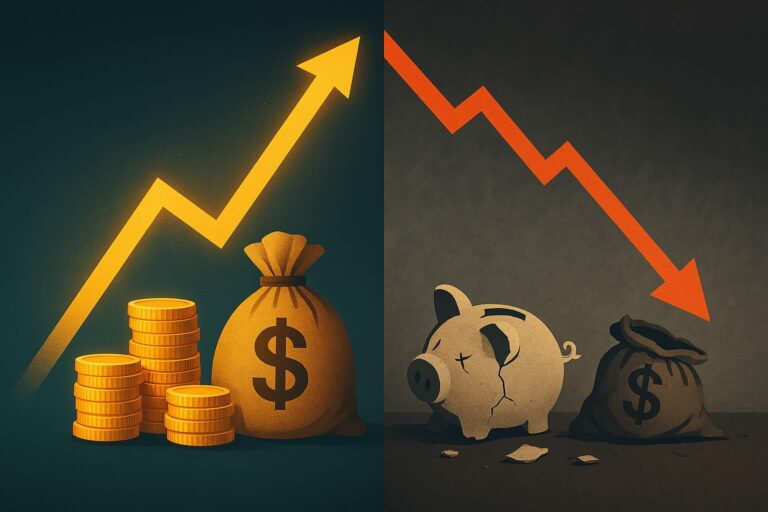A Second Trump Presidency and the Stock Market
On July 5th, before Joe Biden dropped out of the race, and when prediction markets were favoring a Trump presidential win, I wrote an article for the BBAE Blog on investments for a Trump presidency.
Broadly, markets are up on the idea that Trump is pro-business, even if it didn’t always seem that way leading up to the election.

My July piece was just for fun – nothing I pen is ever a recommendation – and Trump’s second presidency hasn’t even started yet, but just for kicks, let’s review:
- US dollar stronger: The ICE US Dollar Index strengthened by 1.6% the day after the election. For a single day, 1.6% is a huge move. The irony is that Trump has said many times that he wants a weaker dollar. But as I mentioned in July, the market is pricing in his (expected) actions instead of his words. Trump wants a cheaper dollar to boost US exports, and believes – not entirely unreasonably, in the eyes of many economists – that some countries who use the US dollar for trade (about 70% of global trade is in dollars) artificially depress their currencies to boost their own exports. Trump wants these countries to stop making their currencies cheap – but not stop dollar trade entirely; he has threatened “100% tariffs” against countries that opt out of dollar-based trade (though if they opt out in the first place, would they care much about tariffs?). As an alternative, he also wants the US to devalue the dollar, or at least consider doing so. Either way, nobody seems to believe a weak dollar is coming, and investors keep flocking to the strong US economy.
- Steel: I also mentioned American steel companies Cleveland-Cliffs (NYSE: $CLF), which dropped from roughly $15 on July 5th to $13 now, and Nucor (NYSE: $NUE), which rose from roughly $153 to $161.

- Small cap stocks: Trump is a domestically focused president, and small caps do a lot more business domestically than large caps. The Vanguard Small-Cap Index Fund Admiral Shares ($VSMAX) rose from $103 (approximately) on July 5th to $120 now – including a 4.3% gain the Wednesday after the election alone. (Remember: The Trump presidency hasn’t gotten started; this is all just anticipatory movement.)
- Bonds (a negative trade: short or avoid them): Granted, the election may have just happened, but bond prices absolutely plunged, causing even US government bond yields to rise by 14 basis points the day after the election. (Bond payments are fixed, so when people say “bond yields shot up,” it also means that bond prices plunged.) Presumably, bond investors are worried about Trump-driven inflation, and that presumably coming from some combination of higher government spending (fueled by debt; see the Bloomberg graphic below and disregard the now-obsolete “Harris” parts), lower taxes, higher tariffs, and a reduction in the low-cost US labor pool thanks to anti-immigration policies.
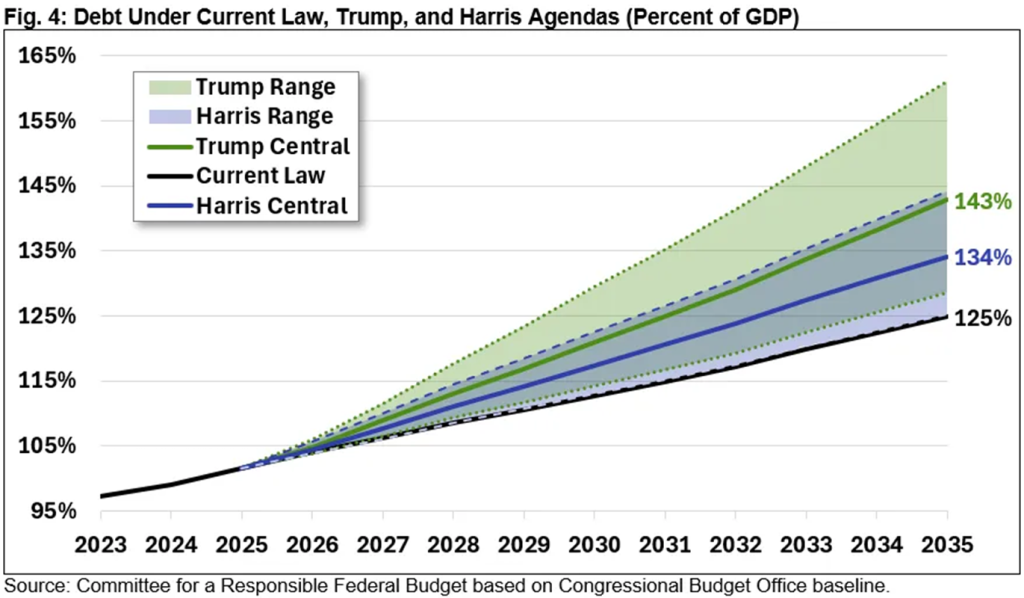
- Private prisons: This has been one of the best Trump trades. After Biden’s lackluster debate performance, GEO Group (NYSE: $GEO) and CoreCivic (NYSE: $CXW) saw their stocks rise. GEO rose from $14ish on July 5th to $24 now – it’s up 59% in the past five days alone – and CoreCivic had an almost-identical rise from $13ish to $22, and is also up 59% in the past five days.
- Healthcare stocks: I wrote in July that I wasn’t as confident about this group as Trump trades as the others in July. Trump does want to repeal the Inflation Reduction Act, which puts margin pressure on pharmaceutical companies, and seems less keen to regulate health care. Stock results have been mixed. Humana (NYSE: $HUM) has dropped from $368 to $287. UnitedHealth (NYSE: $UNH) has risen from $488 to $605. CVS (NYSE: $CVS) has been almost perfectly flat, hovering between $56 and $57.
- Dirty energy up; clean energy down: The Range Global Coal Index ETF (NYSE: $COAL) seems like a reasonable proxy for dirty energy; it was $25 in July and is $25 now, but dipped and then rebounded – up 9% in the past five days – to make that happen. The Energy Select Sector SPDR ETF (NYSE: $XLE) contains a lot of oil companies and boringly rose from $90 to just $93. The iShares Global Clean Energy ETF (NYSE: $ICLN) was also basically flat: $13 to $12. The energy bit of the “Trump trade” has been a nothingburger.
- Financial companies: Trump is a reduced-regulation guy, and fewer regulations – especially around mergers and acquisitions — give investment banks more chances to earn lucrative deal fees. (Some analysts warn that Trump, with Elon Musk’s encouragement, may gut the already-understaffed SEC, which could have separate ramifications.) While my guess is that Trump will move to replace M&A skeptic FTC Chair Lina Khan, some scholars point out that a Trump administration may not be as pro-M&A as one might expect. The Financial Select SPDR Fund (NYSE: $XLF) has risen modestly since July – from $41something to almost $49.
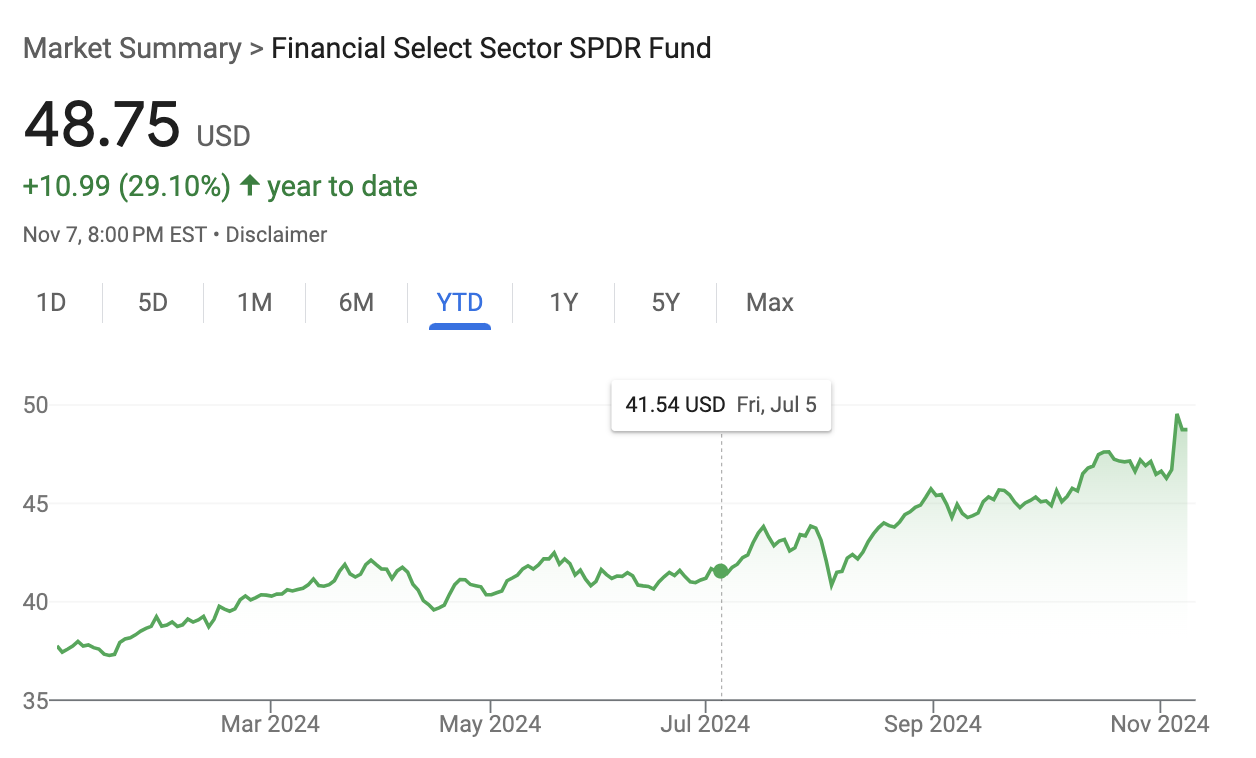
- Bonus: Fanne Mae (OTC: $FNM) and Freddie Mac (OTC: $FMCC) stocks rose – up 48% and 41% over the past five days, respectively – on hopes of privatization under Trump.
Does the President Matter for Stocks?
Yes and no. I’d like to close with two charts by Charlie Bilello of Creative Planning.
The first is simple: Stock market performance under each presidential term for almost the past century.
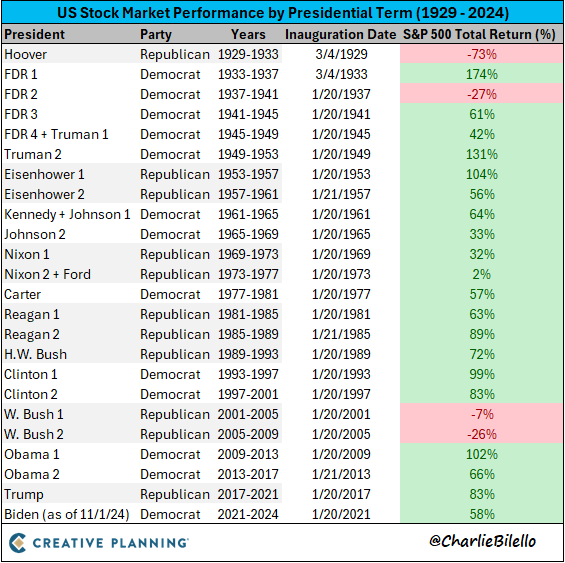
You may have seen various charts showing market performance during Democratic and Republican presidents. The below chart may be slightly contrived – nobody would actually just invest under just Republican or Democratic presidents – but it underscores the importance of staying invested:
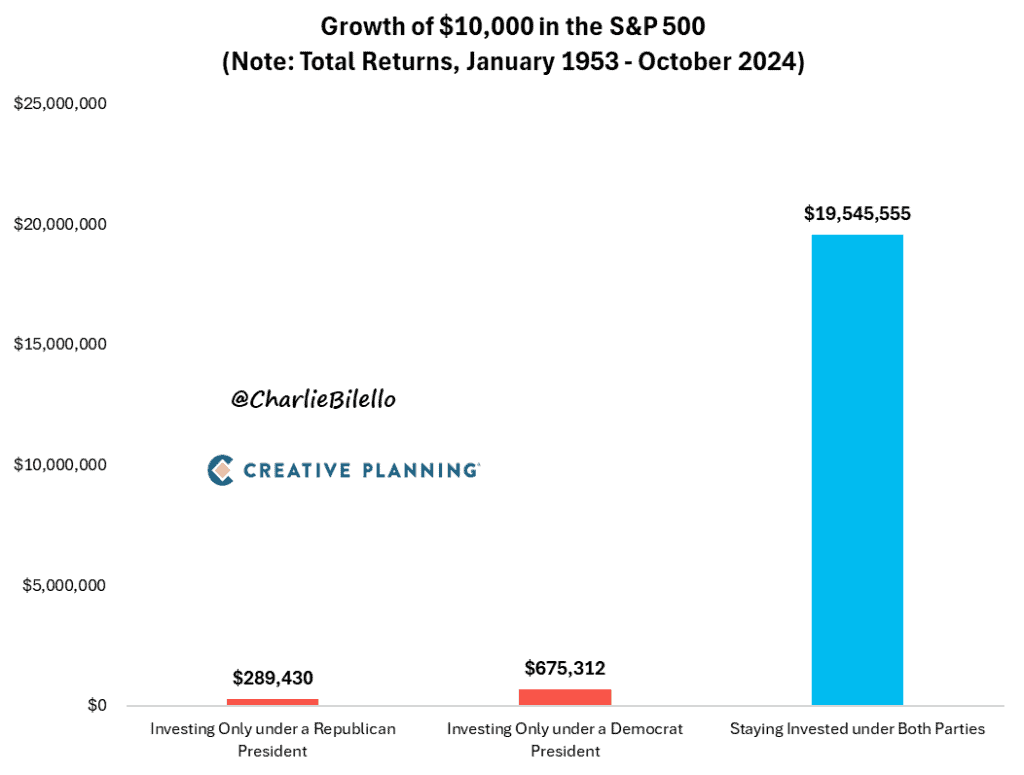
While some Trump trades have panned out, others haven’t. The US presidential election gets spades of news coverage, for obvious reasons. And it’s tempting to want to bake in the news that’s most in our orbits (i.e., familiar to us) into our investments – in fact, it’s a well-documented cognitive bias. But while it’s clear that government policies can and do have major and long-term economic ramifications, especially for certain industries, government moves – at times, the decisions of a handful of people – tend to be among the less predictable of stock-moving catalysts, in my opinion.
It’s very interesting, and perhaps a little exciting, to want to invest based on political headlines. In most cases and for most people, I’d wager it’s going to be more profitable to stick to the economic blocking and tackling of finding good companies and holding them through Republican and Democratic administrations alike.
This article is for informational purposes only and is neither investment advice nor a solicitation to buy or sell securities. Investing based on political events, policies, or anticipated outcomes is inherently speculative and can involve substantial risk. All investment involves inherent risks, including the total loss of principal, and past performance is not a guarantee of future results. Always conduct thorough research or consult with a financial expert before making any investment decisions. Neither the author nor BBAE has a position in any investment mentioned.





